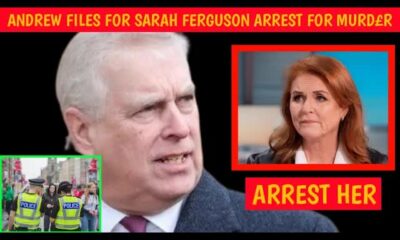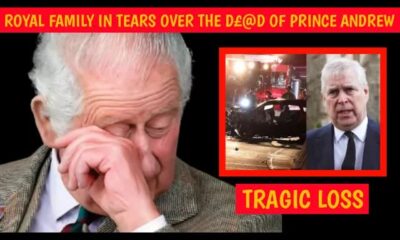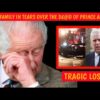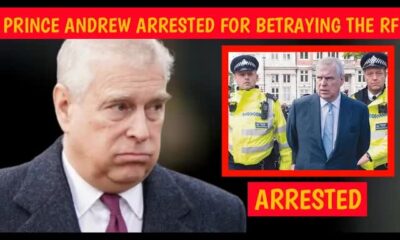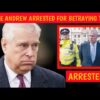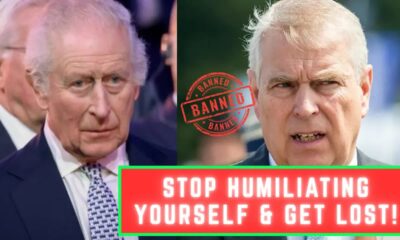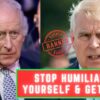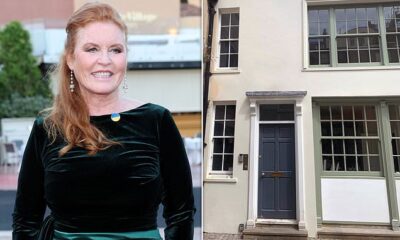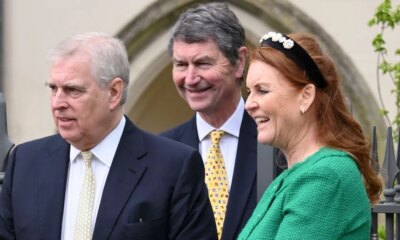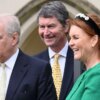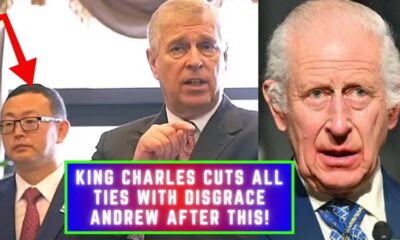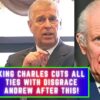Must Read
### Prince Andrew’s Financial Lifeline: A Royal Dilemma Unfolds
The saga surrounding Prince Andrew and his living situation has taken yet another unexpected twist, leaving many royal watchers intrigued.
Recent reports reveal that the beleaguered Duke of York may have received a significant financial boost from an anonymous benefactor, who is allegedly providing him with a yearly subsidy of $3 million.
This development comes at a time when Andrew is grappling with rising debts, the loss of his royal income, and intense scrutiny over his financial affairs.
The roots of this conflict stretch back to March 2023, when King Charles III proposed that Andrew vacate his lavish 30-room Royal Lodge in Windsor Great Park.
In exchange for relocating, Andrew was offered Frogmore Cottage, a property previously occupied by the Duke and Duchess of Sussex.
This move was part of King Charles's broader initiative to trim royal expenses and ensure that residences align with the current needs of their occupants.
However, Andrew, now 63, has resisted this change, leading to a tense stalemate that has drawn criticism from both royal insiders and the public.
For over two decades, the Royal Lodge has been Andrew's home, a symbol of his former prominence within the royal family.
Surrendering this residence would be perceived as an admission of his diminished status, a concession he seems unwilling to make.
The emergence of an anonymous benefactor has dramatically shifted the dynamics of this ongoing dispute.
Reports indicate that this individual is willing to subsidize Andrew's expenses, providing him with a much-needed lifeline.
While this financial support offers temporary relief from Andrew's immediate troubles, it raises new questions about the long-term ramifications for him, the Royal Family, and public perceptions of the monarchy.
Royal commentator Bronte Coy recently expressed her uncertainty regarding this arrangement, questioning the legitimacy of the benefactor and their motivations.
“I don't know who this person is or how long they will continue these payments,” she remarked, highlighting the ambiguity surrounding Andrew's newfound financial backing.
Andrew's financial difficulties have been under the microscope, particularly following his controversial 2019 interview with BBC's Newsnight.
Intended to address his ties to convicted s offender Jeffrey Epstein, the interview backfired spectacularly, resulting in Andrew stepping back from royal duties and losing his annual allowance of approximately $249,000.
With his royal privileges stripped away, Andrew has become increasingly reliant on personal wealth and family support.
Adding to his financial woes, Andrew faced substantial costs in settling a civil sual assault case brought against him by Virginia Giuffre in the United States.
While the exact settlement amount remains undisclosed, estimates suggest it could be between £7.5 million and £12 million, further complicating his financial landscape.
Despite consistently denying the allegations, Andrew's reputation has taken a significant hit, raising eyebrows about his financial ethics.
Historically, Andrew has inherited considerable wealth from both his mother, the late Queen Elizabeth II, and his grandmother, Queen Elizabeth the Queen Mother.
However, this financial legacy has been overshadowed by a series of questionable dealings.
For instance, in 2017, Andrew reportedly had a $1.5 million personal loan repaid by a company linked to a wealthy Conservative Party donor, raising further questions about his financial judgment.
One of the most scrutinized transactions in Andrew's financial history was the sale of Sunning Hill Park, a mansion gifted to him and his ex-wife, Sarah, Duchess of York, by Queen Elizabeth.
Sold in 2007 for $15.3 million above its asking price, the sale was facilitated through an offshore trust, prompting allegations of impropriety that continue to haunt him.
Despite their divorce, Andrew and Sarah maintain a close relationship, with Sarah defending Andrew amid controversies, although her own financial decisions have also drawn criticism.
The Royal Family's finances have long been criticized for their lack of transparency, and Andrew's situation exemplifies this ongoing issue.
Coy pointed out the difficulty in tracing the sources of Andrew's income and the motivations behind his benefactors' support.
This opacity has sparked broader discussions about the accountability of the monarchy, especially as public interest in royal expenditures continues to rise.
Prince Andrew is not the first royal to face financial controversies, but his situation stands out due to its blend of personal scandal and diminished royal responsibilities.
His case raises critical questions about the role of non-working royals and the extent to which the monarchy should provide financial support to them.
The involvement of an anonymous benefactor could set a concerning precedent, potentially undermining efforts toward transparency within the institution.
As of now, this benefactor's support seems to have allowed Andrew to remain at the Royal Lodge, but it does little to address the larger issues surrounding his financial independence and public perception.
The uncertainty of whether Andrew will ultimately have to relocate to Frogmore Cottage lingers in the air.
As he navigates these turbulent waters, his reliance on external support may invite further scrutiny, particularly if the benefactor's identity and intentions remain shrouded in mystery.
In light of all these developments, one thing is clear: Prince Andrew's battle may have seen a temporary victory, but the war over his financial future and royal standing is far from settled.
The ongoing saga serves as a stark reminder of the challenges facing the modern monarchy, where public expectations for accountability are ever-increasing.
As we watch this story unfold, the question remains—what will happen next in the life of Prince Andrew?

